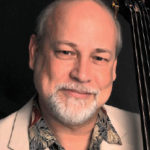by Karen Wang Diggs, nutritionist and author of Happy Foods: Over 100 Mood-Boosting Recipes
You want to perform your best on stage. But you’ve got jet lag, spent a fitful night in a hotel room with paper-thin walls, and have heartburn from pizza you gobbled down before rushing to the theater. While it’s hard to maintain equilibrium and eat healthy on the road, there are things you can do to buffer stress, boost energy, and keep your immune system strong, in order to perform at your best.
 1) Get a lemon water jump-start. Upon waking, have an 8 oz. glass of room temperature water with two or three tablespoons of fresh lemon juice. This hydrates you first thing in the morning, detoxifies your liver, and alkalinizes your body.
1) Get a lemon water jump-start. Upon waking, have an 8 oz. glass of room temperature water with two or three tablespoons of fresh lemon juice. This hydrates you first thing in the morning, detoxifies your liver, and alkalinizes your body.
2) Protein-based breakfast is best. Avoid bagels, donuts, and other starch-laden/sugar-drenched baked monstrosities for breakfast. The double whammy of carbohydrates and sugar will spike-up your blood sugar, and cause low energy, and possibly, mood swings. Not to mention, pastries are calorie-dense, but nutritionally empty. Instead, enjoy eggs, sausages, oatmeal with yogurt and nuts, or a protein-based smoothie.
3) Ditch the diet sodas. You may think that switching to sugar-free soda and snacks is better, but artificial sweeteners actually confuse our brain and body by tricking you into thinking that you are consuming real sugar when it’s fake. This leads to metabolic confusion and overconsumption. Even though we know that sugar is bad, it does provide fuel in the form of glucose and fructose. So, when you drink a diet soda your taste buds sense sweetness and send a signal to your brain that energy is on its way. However, since artificial sweeteners are devoid of nutrients and filled with toxic chemicals, your entire physiology gets whacked out. Your cells are expect fuel, but there’s nothing coming, so you overeat to compensate for the fraud. Instead, enjoy sparkling mineral water with lemon slices, kombucha (in moderation), or coconut water.
4) Banish candy bars. Most of them are made from high-fructose corn syrup and other unnatural ingredients that are toxic to the liver and cause binging and weight gain. Instead, enjoy dried dates with unsweetened peanut butter, tahini, or cashew butter. Or make and pack your own healthy sweet treats. (Go to www.InternationalMusician.org/Top-10-Healthy-Touring-Tips for a recipe for Coconut & Date Kisses.)
5) Cut out conventional chips. These are made with vegetable oils such as canola, or corn that are high in omega-6 fatty acids. High omega-6 intake leads to inflammation, which can cause joint pain and heart disease. They also contain artificial flavors that cause binging and zap your energy. Instead, enjoy raw nuts and seeds.
6) Curb coffee after 3:00 PM. While a jolt of caffeine can give you a boost, caffeine in the afternoon can upset your sleep, remaining in your system for six to eight hours. Coffee is acidic and drains needed minerals from the body. Instead, enjoy black or green teas if you need an afternoon lift. Teas also contain a unique amino acid, L-theanine, which boosts concentration while keeping the mind relaxed with alpha brain waves.
7) Take Vitamin C. This helps to keep your immune system strong, and buffers physical stress. Choose a brand that does not contain GMO ingredients and is made from natural sources such as citrus or rose hips.
8) Probiotics please. Good gut health is the key to digestion, and also prevents constipation.
Probiotics also balance our gut terrain and keep harmful bacteria at bay. Choose a brand that does not need to be refrigerated and contains multiple strains of cultures, including: L. acidophilus, B. lungum, and B. bifidum.
9) Less EMR (electromagnetic radiation). According to some studies, radiation from cell phones, laptops, other wireless devices can cause subtle damage to our cells over time. It can also interrupt the production of melatonin. Place your cell phone and laptop far away from your bed at night.
10) Detox after touring. The angst of traveling and performing can create a lot of toxins in your cells. Over time, this can lead to physical illness and negative moods. Choosing the right detox can be confusing. It should be gentle and support your body with all the nutrients that it needs. The book Happy Foods contains safe, effective detox advice.
Coconut & Date Kisses
YIELD: approx. 24 pieces
- 15 medjool dates, pitted
- 1/3 cup raw cashews, soaked for 5 hours
- 2/3 cup raw walnuts, soaked for 5 hours
- 2 tablespoons unsweetened cocoa powder
- ¼ teaspoon ground cinnamon
- ¼ teaspoon freshly ground nutmeg
- ¼ teaspoon sea salt
- ½ teaspoon cayenne (optional)
- 2 tablespoons filtered water
- 2 cups unsweetened shredded coconut flakes, for coating
- Drain the soaked nuts and put in a food processor along with the other ingredients except the coconut flakes.
- Blend until ingredients are well mixed and form a ball.
- Add extra water one tablespoon at a time as needed to facilitate blending. The mixture should feel soft.
- Pinch off a well-rounded tablespoon of the mixture and roll it between your palms into a ball. Keeping your palms moist with water will prevent sticking and help make smooth, rounded spheres.
- Spread the coconut flakes on a large dish and roll the date balls in them to coat.
Once they are well coated, they magically transform into Coconut & Date Kisses! Yummy.
(Recipe from Happy Foods)
References:
2. http://www.lifeextension.com/magazine/2007/8/report_cellphone_radiation/Page-01
—After graduating from California Culinary Academy, Happy Foods author Karen Wang Diggs flew to Hong Kong where she worked as a chef for the Mandarin Oriental Hotel and helped open two eateries. After certification as a nutrition consultant, Diggs began merging her culinary skills with her knowledge of holistic nutrition, helping people achieve optimal health through detoxification and nutrition. She lives in San Francisco, California.



